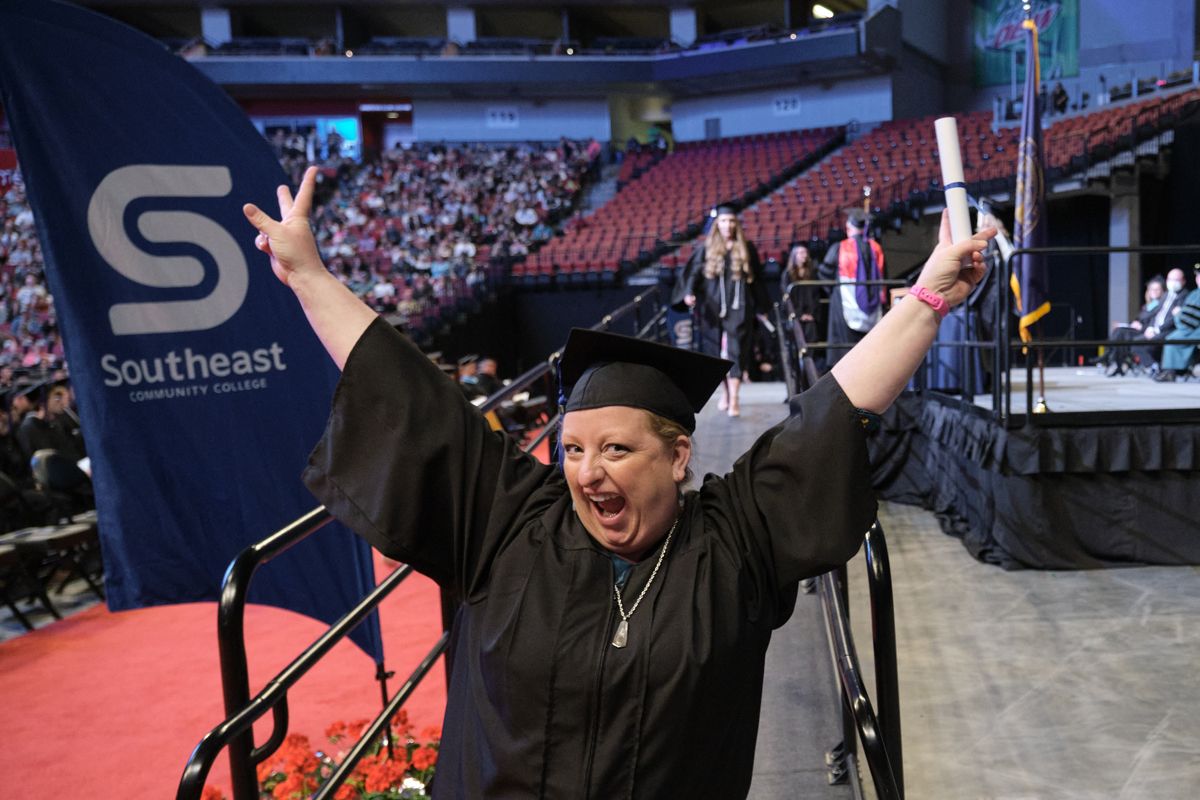ÅÝܽÊÓƵapp AT A GLANCE
Are you looking for a career or just looking for a career change?
 Would you like to reduce your debt as you pursue a bachelor's degree?
Would you like to reduce your debt as you pursue a bachelor's degree?
ÅÝܽÊÓƵapp Community College is the place for you!
|
Offers more than 80 Programs of Study. Most can be completed in 18-24 months. |
Offers online options, including the ability to complete some programs entirely online. |
Offers one of the most affordable tuition and fees among all Nebraska colleges. |
|---|
|
Boasts a student success rate of more than 90%. |
Awards the Associate of Applied Science degree, Associate of Arts degree, Associate of Science degree, Associate of Occupational Studies degree, Diploma, and Certificate. |
Offers hundreds of non-credit classes and workshops in a variety of topics. |
Has nearly 20 intercollegiate athletic programs that compete at the National Junior College Athletic Association level. |
|---|
Approximately 9,500 students enroll at ÅÝܽÊÓƵapp annually, taking courses at campuses in Beatrice, Lincoln, and Milford. ÅÝܽÊÓƵapp also offers courses in Lincoln at two off-campus sites: the Jack J. Huck Continuing Education Center, and a downtown location known as Education Square. And the College has expanded its availability to all of the 15-county area with learning centers in Falls City, Hebron, Nebraska City, Plattsmouth, Wahoo, and York.
ÅÝܽÊÓƵapp also offers Adult Basic Education classes and citizenship classes, and General Educational Development tests for students who have not earned a high school diploma.
The College also has a nationally known Entrepreneurship Center. The Center teaches courses on starting a business and operates successful Focus Suites that provide support for new, operational or growing ventures.
ÅÝܽÊÓƵapp has a stellar reputation for producing skilled workers through its career/technical programs. More than 100 employers from states near and far attend the career fairs each spring on the Milford Campus.
ÅÝܽÊÓƵapp is governed by an 11-member Board of Governors and is accredited by the Higher Learning Commission. The College has operated in its current structure since July 1, 1973, when a statewide community college system was implemented by the Nebraska Legislature. However, the campus in Milford, approximately 25 miles west of Lincoln, existed long before 1973. The first postsecondary technical institution to exclusively offer two-year postsecondary degrees in vocational-technical programs was established by the Nebraska Unicameral in 1941 at Milford. Operated by the Nebraska Department of Education, the school was originally established to meet the occupational education needs of the entire state.
In 1971, the Legislature passed a bill which combined junior colleges, state vocational-technical colleges, and the area technical schools into one system of two-year institutions. The consolidation originally established eight technical community college areas. The number was reduced to six when the Lincoln and ÅÝܽÊÓƵapp areas merged in 1973. As conceived in 1971, Nebraska community college areas were to be governed locally by elected boards.
ÅÝܽÊÓƵapp's Beatrice Campus, approximately 45 miles south of Lincoln, offers technical and transfer programs, including a laboratory farm operation where students receive hands-on education in several ag-related areas. The main part of campus includes a welcome center, the Academic Excellence Center, a gymnasium for intercollegiate athletics and intramural sports, and student housing.
The Beatrice Campus is a former John J. Pershing College that operated from 1966-1971. ÅÝܽÊÓƵapp began utilizing the campus in the late 1970s, and in 1986, operations at Fairbury Junior College were moved there.
ÅÝܽÊÓƵapp has had a presence in Lincoln for decades. It offers more than 40 technical areas of study in the Capitol City, as well as a robust transfer program for students who wish to continue their education at a four-year institution. Students can choose various paths en route to demonstrating their newly acquired skills, and the college's proximity to the University of Nebraska-Lincoln makes it an ideal choice for UNL students who wish to earn general education credits at an economical cost. A state-of-the-art Health Sciences building houses all health-related programs.
ÅÝܽÊÓƵapp derives its operating revenue from three major sources: local property taxes, state aid (a combination of sales and income tax funds apportioned by the Legislature), and tuition. The Board purposely keeps education at ÅÝܽÊÓƵapp affordable.
A groundbreaking scholarship program helps make ÅÝܽÊÓƵapp affordable. The Learn to Dream Scholarship pays tuition and fees (up to 60 semester credit hours) for qualifying students to attend ÅÝܽÊÓƵapp. The program was initially funded by Nelnet and Union Bank & Trust and was established to benefit students attending Lincoln’s public and private high schools. Not only was the program expanded to include all high schools in ÅÝܽÊÓƵapp’s 15-county service area, but the Acklie Charitable Foundation provided funds to ensure that students can take a second year of credits at no cost. This program offers hope to students who qualify for a free or reduced-price lunch and who otherwise may think they could never attend college.

